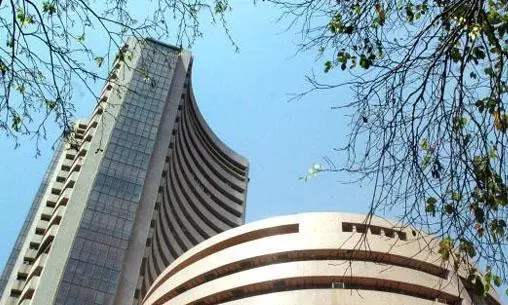Indian Stock Market Lags Behind Global Indices in 2024

MUMBAI: It was a rollercoaster ride for the Indian equity markets in 2024 with benchmark stock indices Sensex and Nifty making decent gains in the first half but losing in the second half of the year due to geopolitical tensions, FII outflows, change in the US government, lesser than anticipated rate cuts by the US Federal Reserve. The Sensex and Nifty have delivered modest annual returns of 8.9 per cent and 9.6 per cent in 2024 respectively which pales in comparison to 20 per cent profit in 2023. The Indian stock market also lagged behind most major global indices in 2024. The US markets stole the show, with the Dow Jones up 14.1 per cent, the S&P 500 soaring 25.2 per cent, and the NASDAQ-100 dominating with a stellar return of 27.6 per cent in 2024. Japan’s Nikkei 225 shone with a 20.4 per cent return, while Hong Kong’s Hang Seng rebounded sharply with a 17.9 per cent gain, clawing back from its steep 16 per cent drop in 2023.
For the year 2024, the BSE HC Index leads the charge with an outstanding 41.5 per cent gain, followed closely by BSE Realty, which has delivered 35 per cent returns. Other standout performers included BSE Auto, Healthcare, and Power, each showcasing significant gains.
FIIs sold equities worth Rs 1.19 lakh crore in 2024 but buying by domestic institutional investors and a steady flow of funds through the SIP route helped stabilize the market. Monthly contributions through SIP consistently rose from Rs 18,838 crore in January to Rs 25,320 crore by December. Also Data shows that the selling spree by FIIs seen in October and November has declined in December.
However, experts anticipate equity markets to deliver lower returns in 2025. Investors are advised to remain cautious and focus on stock specific opportunities.
18000 in a worst case scenario.”
“Nifty 50 earnings per share is projected to grow by 7.6 per cent in FY25, with growth expected to accelerate to 13.7 per cent in FY26 and 11 per cent in FY27, reflecting a robust 14% CAGR over the FY23–27 period. This growth will be supported by the real estate cycle, private capex recovery, and strong construction activity during this period. Risks include global macro uncertainties, inflation pressures, and potential earnings downgrades post-Q3. Nonetheless, we remain optimistic about double-digit earnings growth over the next 2–3 years, driven by stable economic conditions, political continuity, and structural growth,” said Axis Securities report.

